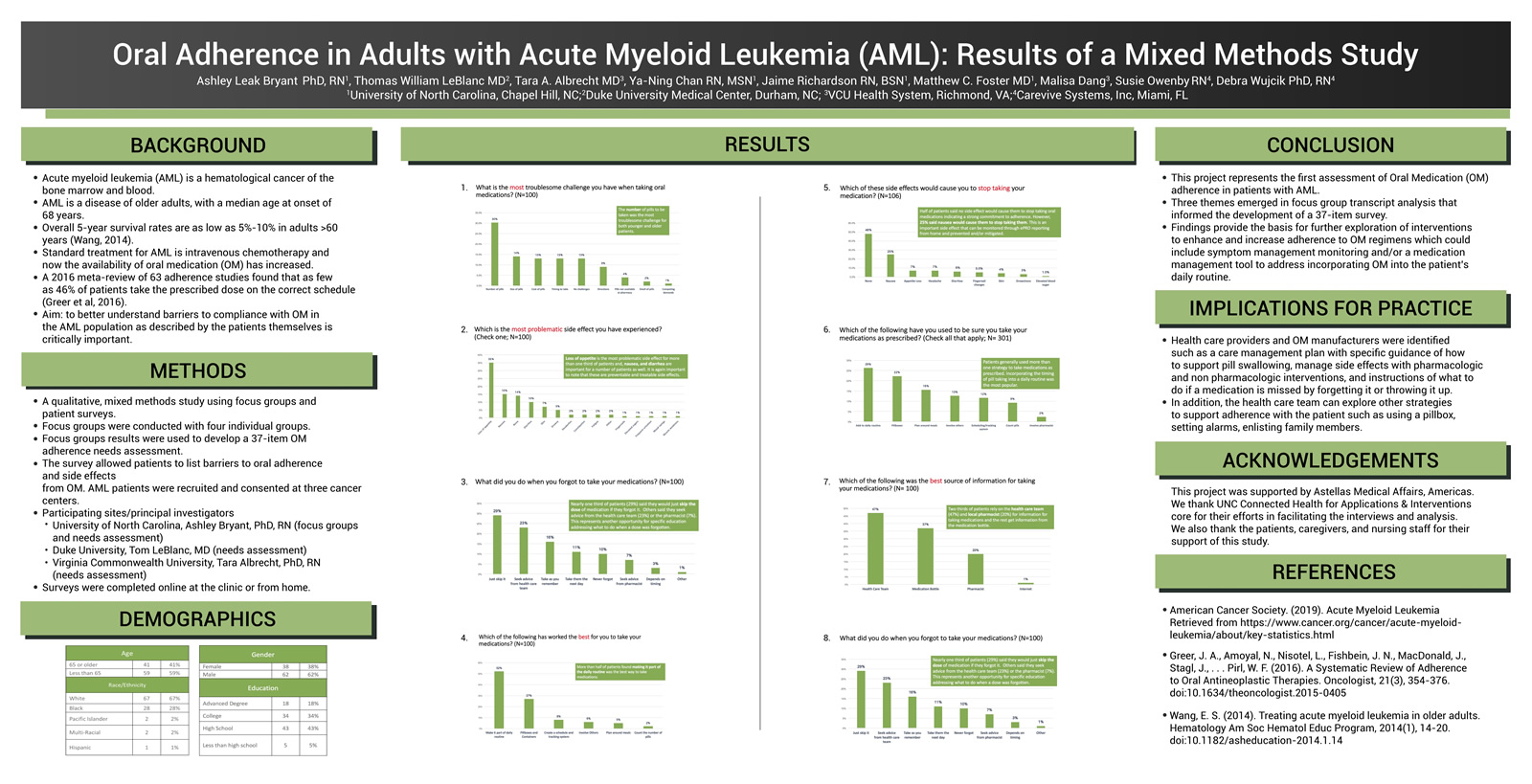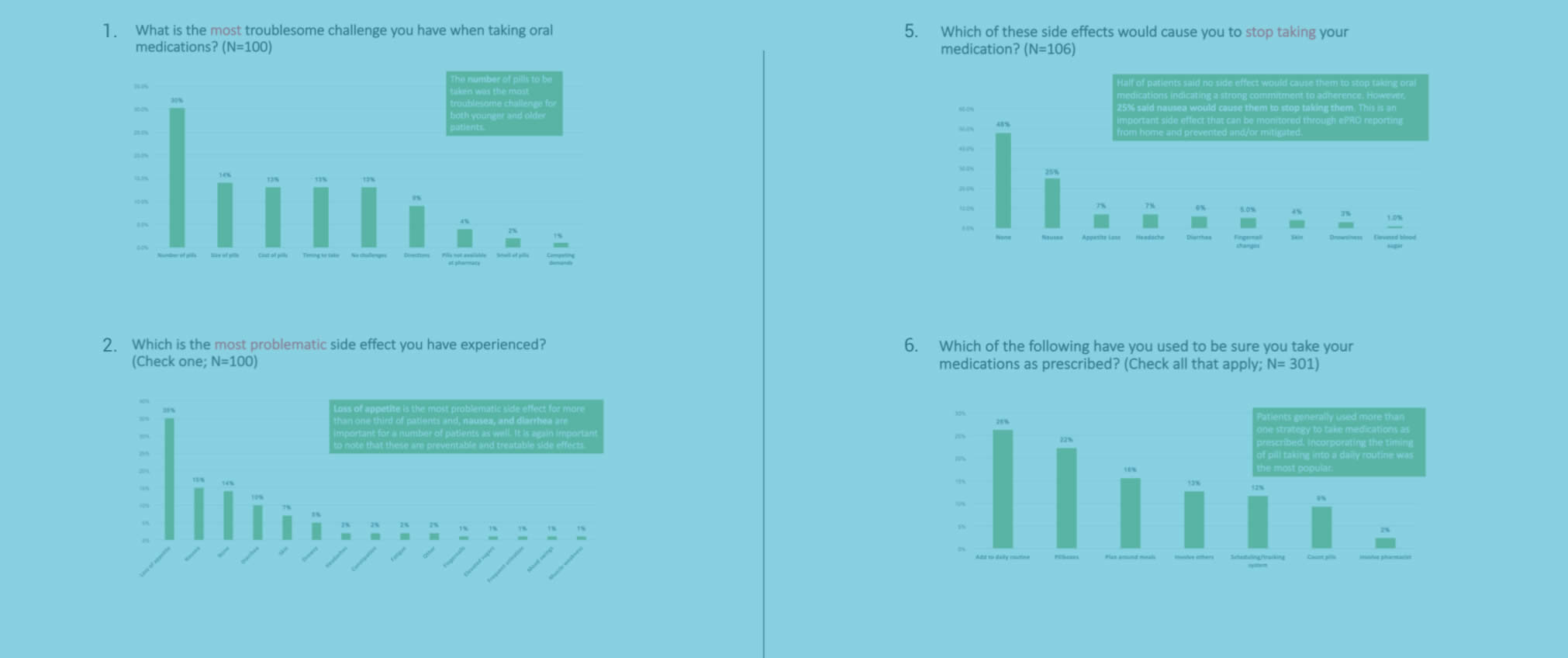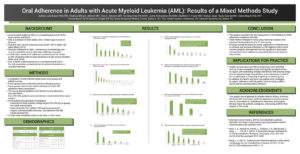
Authors: Ashley Leak Bryant PhD, RN1 ; Thomas William LeBlanc MD2 , Tara A. Albrecht MD3 , Ya-Ning Chan RN, MSN1 , Jaime Richardson RN, BSN1 , Matthew C. Foster MD1 , Malisa Dang3 , Susie Owenby RN4 , Debra Wujcik PhD, RN4
1 The University of North Carolina at Chapel Hill School of Nursing
2 Duke University Medical Center, Durham, NC
3 VCU Health System, Richmond, VA
4 Carevive Systems
Background
- Acute myeloid leukemia (AML) is a hematological cancer of the bone marrow and blood.
- AML is a disease of older adults, with a median age at onset of 68 years.
- Overall 5-year survival rates are as low as 5%-10% in adults >60 years (Wang, 2014).
- Standard treatment for AML is intravenous chemotherapy and now the availability of oral medication (OM) has increased.
- A 2016 meta-review of 63 adherence studies found that as few as 46% of patients take the prescribed dose on the correct schedule (Greer et al, 2016).
- Aim: to better understand barriers to compliance with OM in the AML population as described by the patients themselves is critically important.
Methods
- A qualitative, mixed methods study using focus groups and patient surveys.
- Focus groups were conducted with four individual groups.
- Focus groups results were used to develop a 37-item OM adherence needs assessment.
- The survey allowed patients to list barriers to oral adherence and side effects from OM. AML patients were recruited and consented at three cancer centers.
- Participating sites/principal investigators
- University of North Carolina, Ashley Bryant, PhD, RN (focus groups and needs assessment) Duke University, Tom LeBlanc, MD (needs assessment)
- Virginia Commonwealth University, Tara Albrecht, PhD, RN (needs assessment)
- Surveys were completed online at the clinic or from home.
Conclusion
This project represents the first assessment of Oral Medication (OM) adherence in patients with AML. Three themes emerged in focus group transcript analysis that informed the development of a 37-item survey. Findings provide the basis for further exploration of interventions to enhance and increase adherence to OM regimens which could include symptom management monitoring and/or a medication management tool to address incorporating OM into the patient’s daily routine.
Implications for Practice
- Health care providers and OM manufacturers were identified such as a care management plan with specific guidance of how to support pill swallowing, manage side effects with pharmacologic and non-pharmacologic interventions, and instructions of what to do if a medication is missed by forgetting it or throwing it up.
- In addition, the health care team can explore other strategies to support adherence with the patient such as using a pillbox, setting alarms, enlisting family members.




